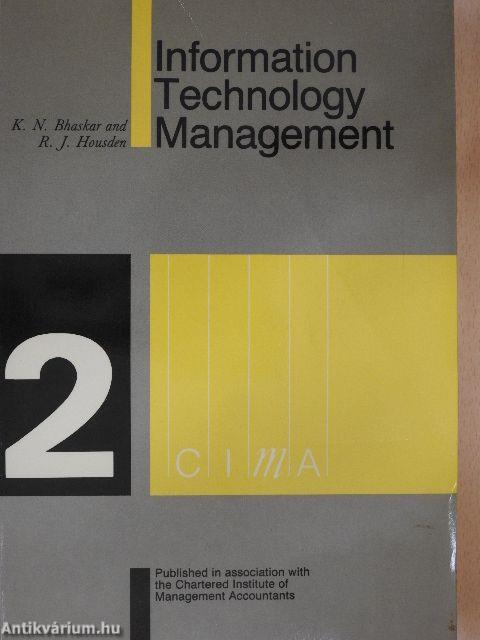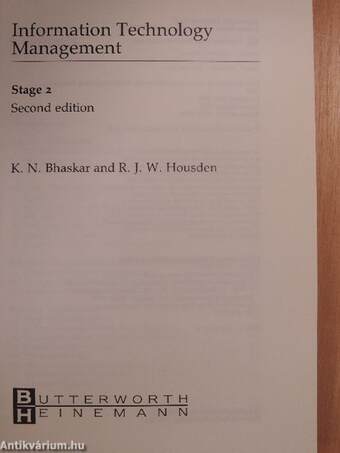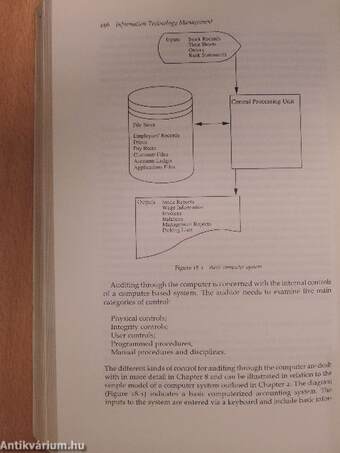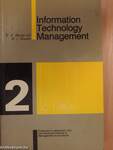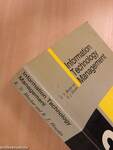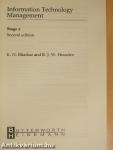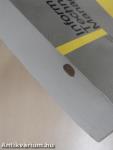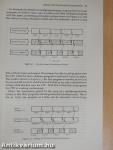1.061.259
kiadvánnyal nyújtjuk Magyarország legnagyobb antikvár könyv-kínálatát

VISSZA
A TETEJÉRE
JAVASLATOKÉszre-
vételek
Information Technology Management 2.
Stage 2
| Kiadó: | Butterworth Heinemann |
|---|---|
| Kiadás helye: | Boston |
| Kiadás éve: | |
| Kötés típusa: | Varrott papírkötés |
| Oldalszám: | 502 oldal |
| Sorozatcím: | |
| Kötetszám: | |
| Nyelv: | Angol |
| Méret: | 23 cm x 16 cm |
| ISBN: | 0-7506-0365-8 |
| Megjegyzés: | Fekete-fehér ábrákkal. |
naponta értesítjük a beérkező friss
kiadványokról
naponta értesítjük a beérkező friss
kiadványokról
Fülszöveg
K. N. Bhaskar obtained both his BSc.(Econ) and
MSc.(Econ) at the London School of Economics where he
also spent two years as a researcher and teacher. He was
a lecturer in Accounting at the University of Bristol and
Professor of Accountancy and Finance at the University of
East Anglia. He now specializes in consultancy in the
computing, IT and telecoms areas and heads his own
consultancy company.
R. W. Housden graduated at Cambridge in Mathematics
and took his PhD at London in Computer Science.
Following appointments as a lecturer in the University of
London Institute of Computer Science and at Birkbeck
College, he spent thirteen years at the University of East
Anglia, first as a Senior Lecturer and then as Professor of
Computing Studies where he was the principal architect of
the BSc. degree programmes in computing and was
responsible, with Professor Bhaskar, for the introduction of
computerized accountancy courses. In 1982 he moved to
the Open University where... Tovább
Fülszöveg
K. N. Bhaskar obtained both his BSc.(Econ) and
MSc.(Econ) at the London School of Economics where he
also spent two years as a researcher and teacher. He was
a lecturer in Accounting at the University of Bristol and
Professor of Accountancy and Finance at the University of
East Anglia. He now specializes in consultancy in the
computing, IT and telecoms areas and heads his own
consultancy company.
R. W. Housden graduated at Cambridge in Mathematics
and took his PhD at London in Computer Science.
Following appointments as a lecturer in the University of
London Institute of Computer Science and at Birkbeck
College, he spent thirteen years at the University of East
Anglia, first as a Senior Lecturer and then as Professor of
Computing Studies where he was the principal architect of
the BSc. degree programmes in computing and was
responsible, with Professor Bhaskar, for the introduction of
computerized accountancy courses. In 1982 he moved to
the Open University where he is Professor of Computer
Sciences and Dean and Director of Studies in Mathematics.
This title, which replaces Accounting Information Systems
and Data Processing, has been rewritten for the CIMA Stage 2
paper to test the students ' ability to communicate effectively with
users of systems and with technical specialists about information
needs and systems requirements: evaluate, propose, implement,
control and manage the use of the computerized information
systems; use development in information technology.
Contents: The management and the computer-based information
system; An introduction to computers; Computer hardware;
Software and the principles of programming; File re-organization
and processing; Data organization and management databases;
On-line systems and networks; Computer systems control and
security; Systems theory and control systems; Systems analysis and
design; Business activities and organization; Basic accounting
systems; Enhanced management accounting systems; Financial
models and spreadsheet applications; Decision support systems;
Office automation; MIS and management accounting; Productivity
and cost control; Computer auditing; Appendix: the audit process. Vissza
Tartalom
Preface vii
Acknowledgements ix
Part One Introduction i
1 The management accountant and the computer-based
information system 3
2 An introduction to computers 15
Part Two Computer Technology 25
3 Computer hardware 27
4 Software and the principles of programming 43
5 File organization and processing 77
6 Data organization and management, databases 96
7 On-line systems and networks 126
8 Computer systems - control and security 171
Part Three Systems Analysis and the Business Environment 211
9 Systems theory and control systems 213
10 Systems analysis and design 233
11 Business activities and organization 272
Part Four Applications 301
12 Basic accounting systems 303
13 Enhanced management accounting systems 335
14 Financial models and spreadsheet applications 364
15 Decision support systems 388
16 Office automation 420
17 MIS and management accounting,
productivity and cost control 434
18 Computer auditing 451
Appendix: The audit process 479
Glossary 486
Index 496
Témakörök
- Közgazdaságtan > Menedzserképzés, marketing
- Közgazdaságtan > Pénzügy > Egyéb
- Közgazdaságtan > Számvitel, elemzés
- Idegennyelv > Idegennyelvű könyvek > Angol > Műszaki
- Idegennyelv > Idegennyelvű könyvek > Angol > Közgazdaságtan > Menedzserképzés, marketing
- Idegennyelv > Idegennyelvű könyvek > Angol > Közgazdaságtan > Számvitel, elemzés
- Műszaki > Informatika > Számítógép > Alkalmazása
- Idegennyelv > Idegennyelvű könyvek > Angol > Közgazdaságtan > Pénzügy > Egyéb
- Műszaki > Idegennyelv > Angol
- Műszaki > Lexikonok, kézikönyvek



